Written by Casey Keyser, MSEA Third Grade Teacher
You flip on your classroom lights, carry your 5 bags and 4 drinks in, drop everything down at your desk, turn on your computer, write your objectives, make copies and then it’s time to welcome in your students, and finally start your day- this is our everyday routine as educators.
For anyone that has ever taught in a classroom where you monitored your student’s arrival time, you know that keeping them occupied is critical when you still need to get all of your morning routines done. Pass out breakfast, take lunch orders, check your email, set up your centers, check communication folders, pull up a million websites, and start morning announcements.
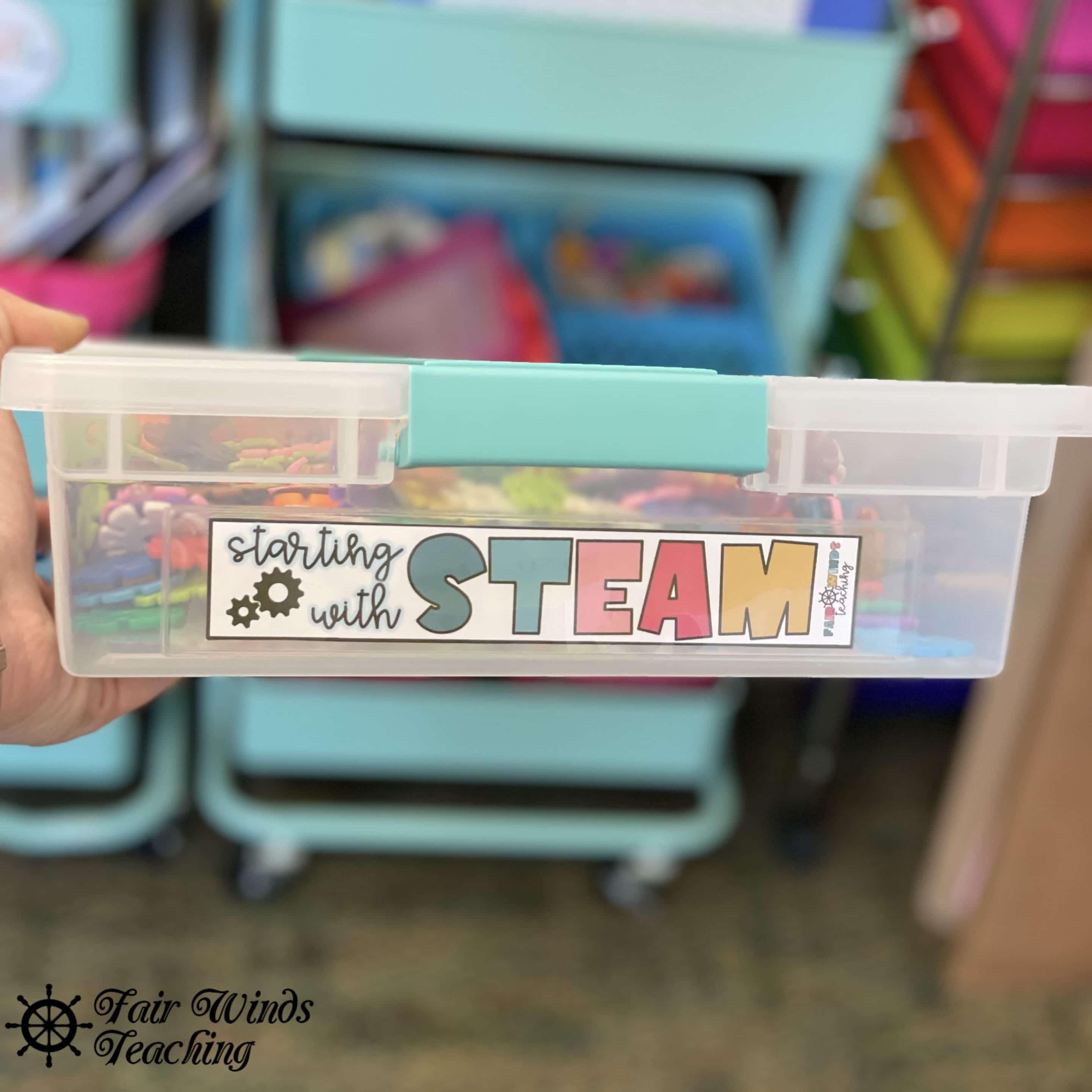
These 30 or so minutes are a perfect time to let your students get creative. A few years ago, I begin creating and using my, Starting with STEAM bins. These morning routine bins motivate my students get their breakfast eaten, complete their make-up work and set up for their day. They want to have time to explore and create with one of the Starting with STEAM bins.
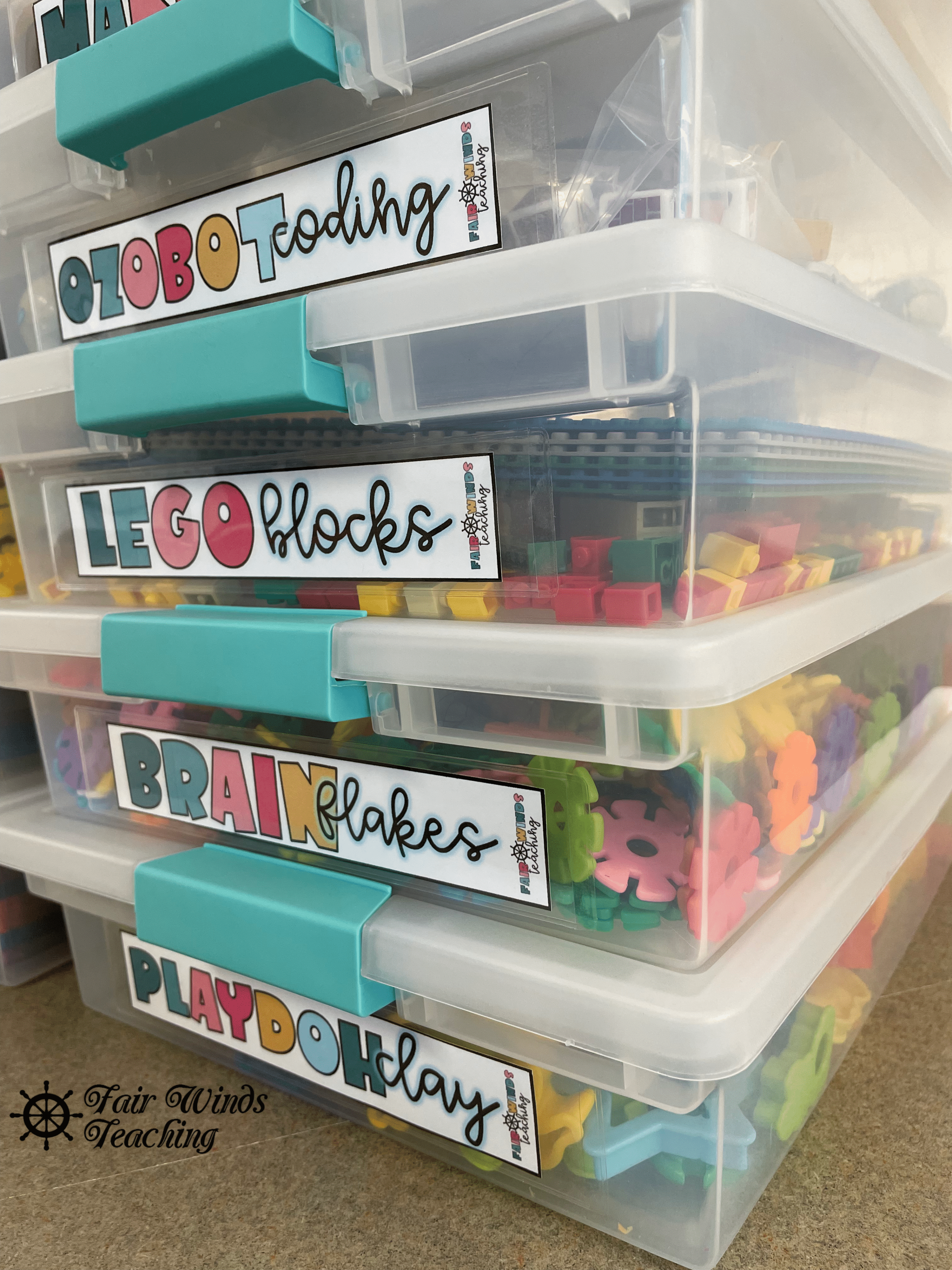
These bins are designed to allow the students to have a creative mind and a bit of unstructured playtime. It awakens their brains for the day and lets them explore the world of science, technology, engineering, art, and mathematics (aka STEAM). Some of my bins come with prompts or directions but most of my bins are free-play or exploring materials.
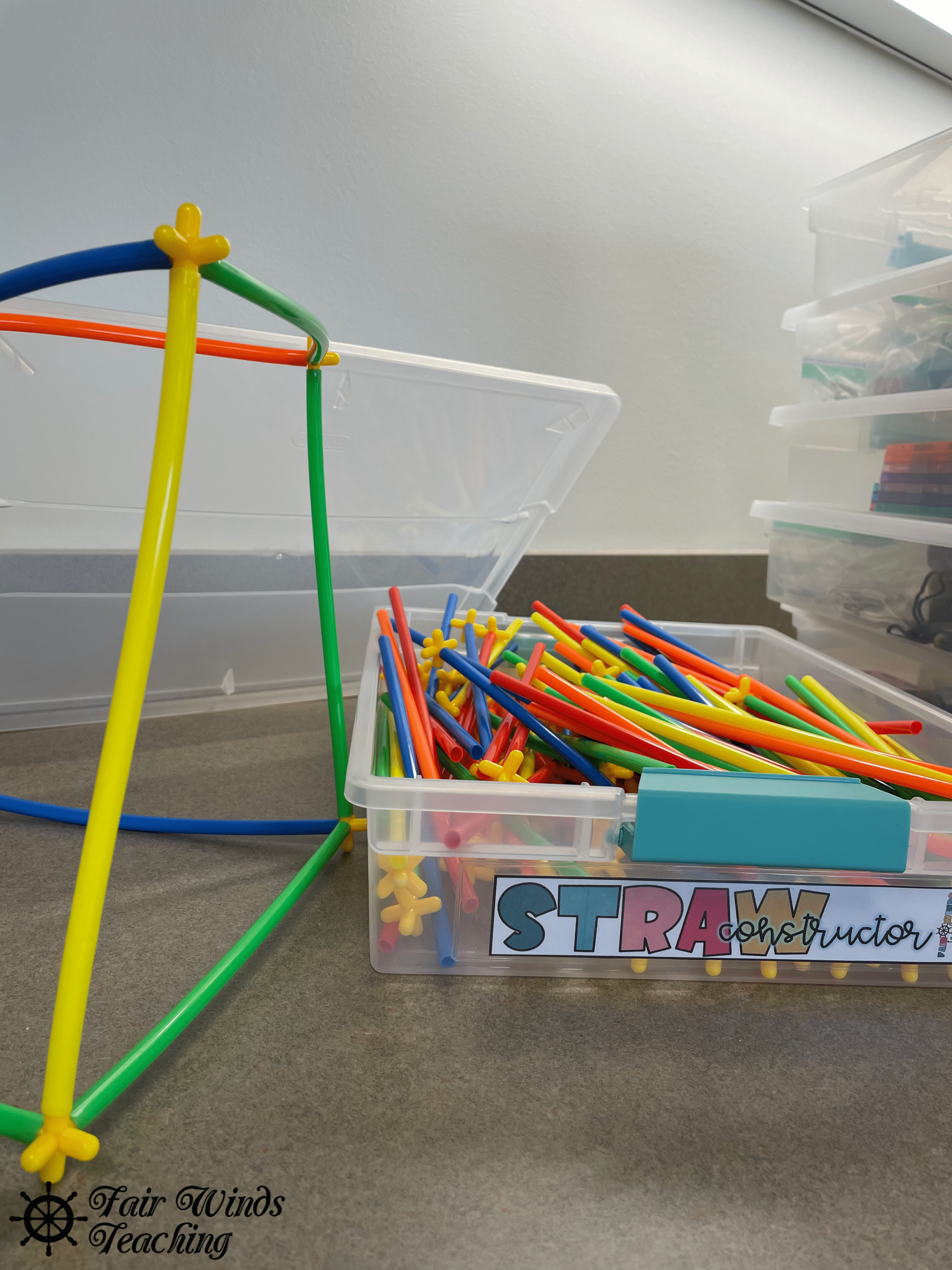
Not only are they the perfect activity for the morning, but you could also incorporate these bins in lots of different situations; science centers, Genius Hour, Coding week, after-school programs, at home, “I’m done, now what” bins, and much more!
I started by buying 12 bins from Dollar Tree and they worked for a couple of years before they busted then upgraded to ones with lid locks on Amazon. You can find all of the supplies I bought on my Amazon Recommendation page here. Most of the items I fill my bins with are best to fit in a paper-sized bin or container.
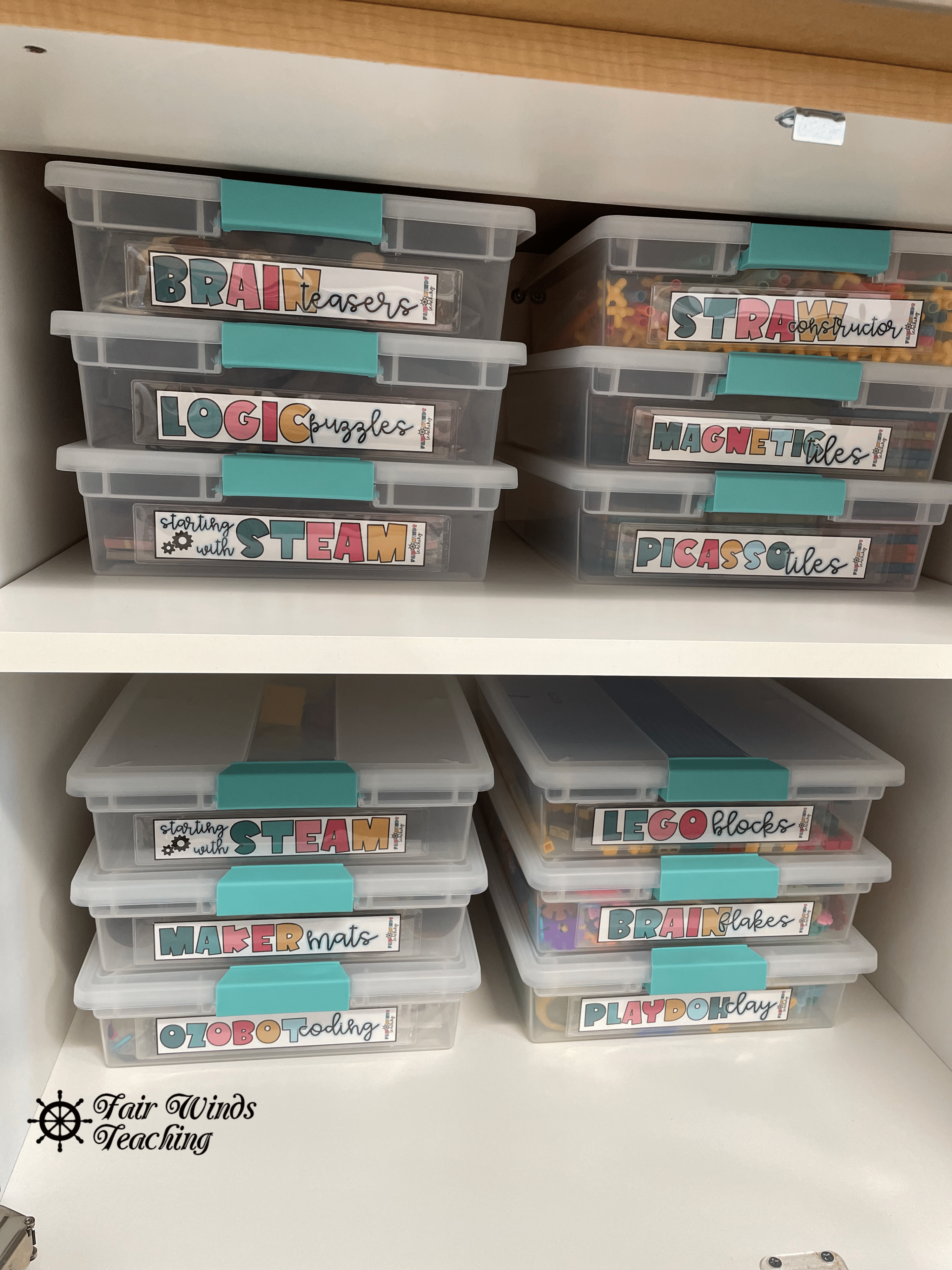
I then started collecting STEAM materials from anywhere I could find them. I always reach out to friends and family first to see if their children have grown out of their old toys such as magnetic tiles, Legos, or consumable items like toilet paper rolls and tissue paper. I then search at yard sales and Goodwill for any cheap finds. I was even able to find some of my items for free. You can also think about completing a Donors Choose project or requesting school funds (if they are available).
I did end up buying a few things online. My two favorite classroom STEAM purchases are these medical trauma shears (kid-friendly and they cut through cardboard safely) and my wireless hot glue gun. I honestly use it every week of teaching and you can walk around your classroom hot-gluing items for students without the cord.
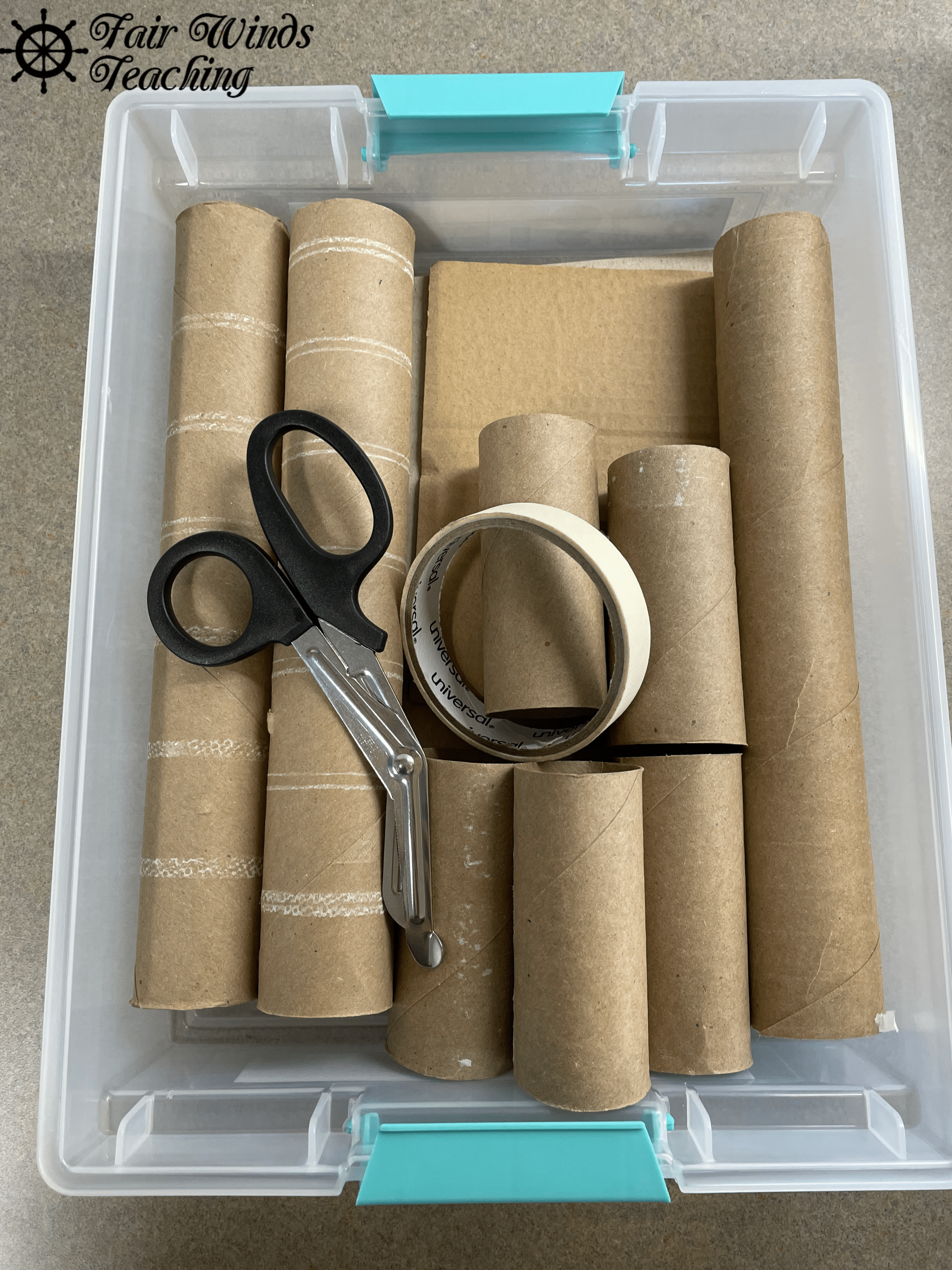
Here is the list of items I have in my classroom (and then some) you can find these quick links on my website:
|
Brain flakes
|
|
Playdoh clay
|
Lego blocks
|
Building discs
|
|
Digit builders
|
Picasso tiles
|
Pipe building
|
Straw constructor
|
Logic puzzles (Dollar Store)
|
|
Magnetic tiles
|
Logic teasers (Dollar Store)
|
Rubik’s cube
|
Blank Space Books (Fair Winds Teaching)
|
Coding mouse
|
|
|
Watercolor paints
|
Stickers
|
Fingerprint Art
|
STEAM Books
|
I also created these “Starting with STEAM” bin labels to add to your organized bins. I used label holders from the Target Dollar spot or found some online. Simply print and laminate for a quick and easy way to stick them on.
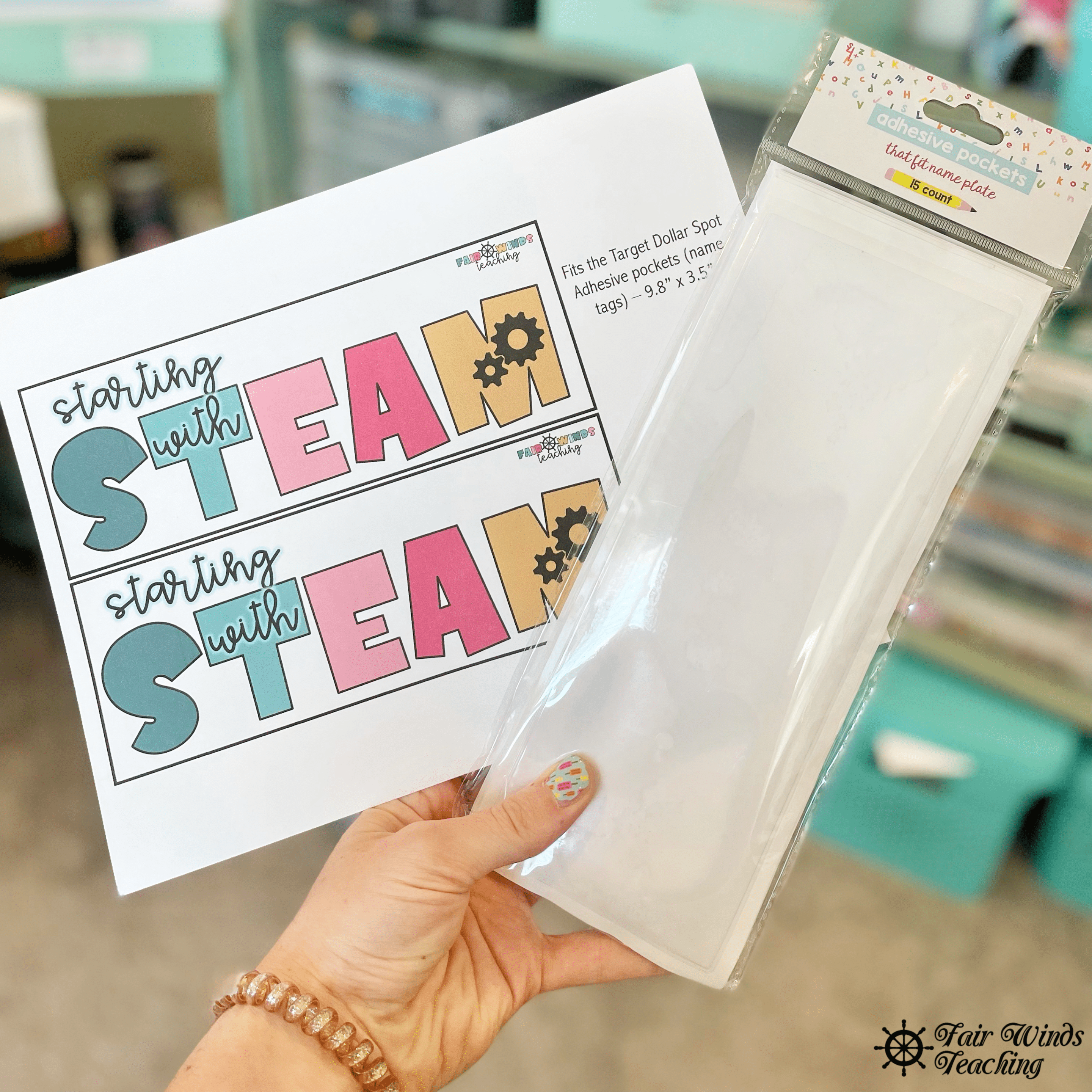
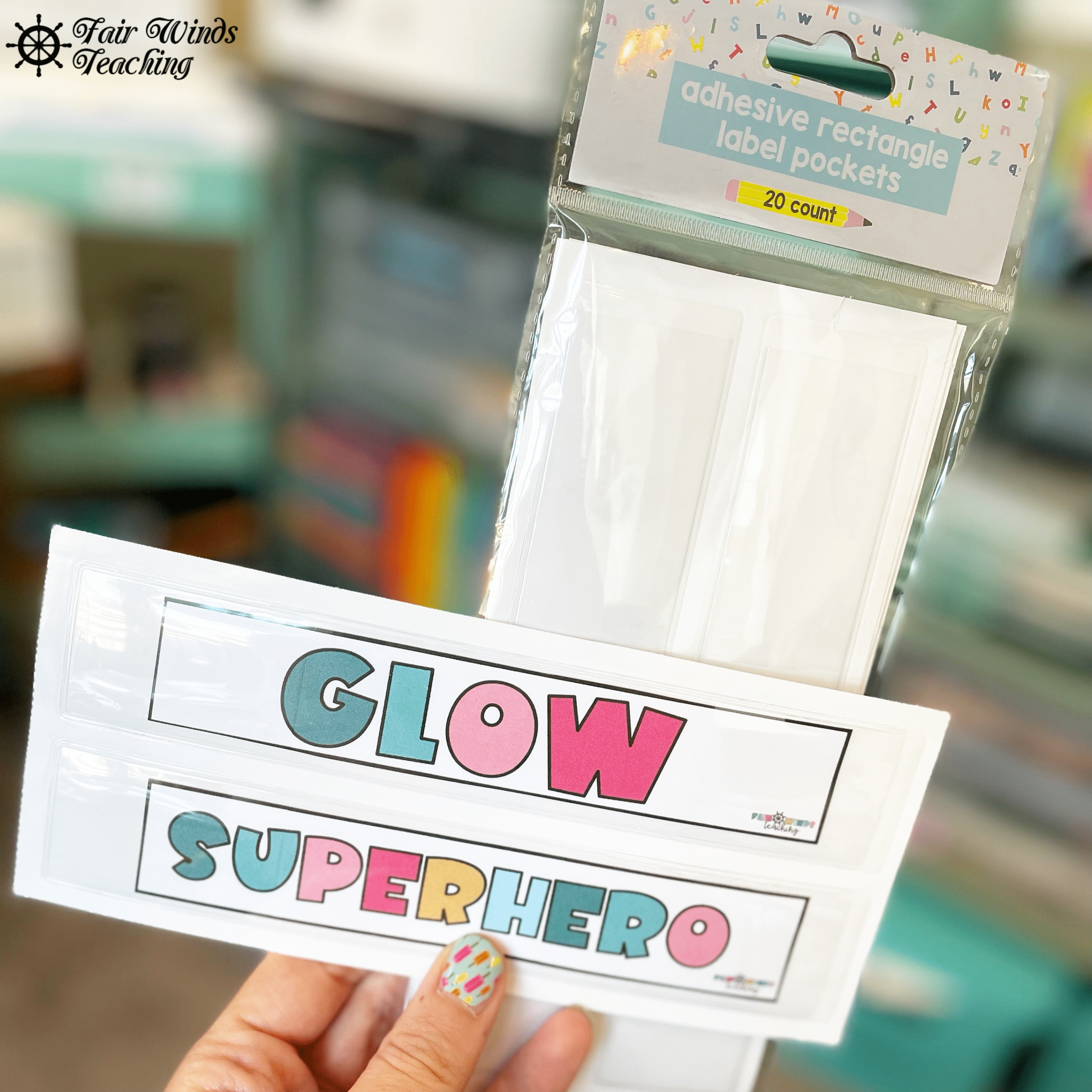
One of the student’s favorite Starting with STEAM bins to grab are my Blank Space Books. These books are a shared experience with their classmates. I bought colorful blank books from the Target dollar spot (or available online) and added these class Blank Space topics. The bundle has over 10 different book ideas. The students use the printed template to have lined paper to glue on or use the blank space the page provides. They write an experience for their other classmates to read. Then they also have the opportunity to read other students’ responses. It gives them an outlet to share a time they went on a vacation, lost their tooth, or got an ouchy.
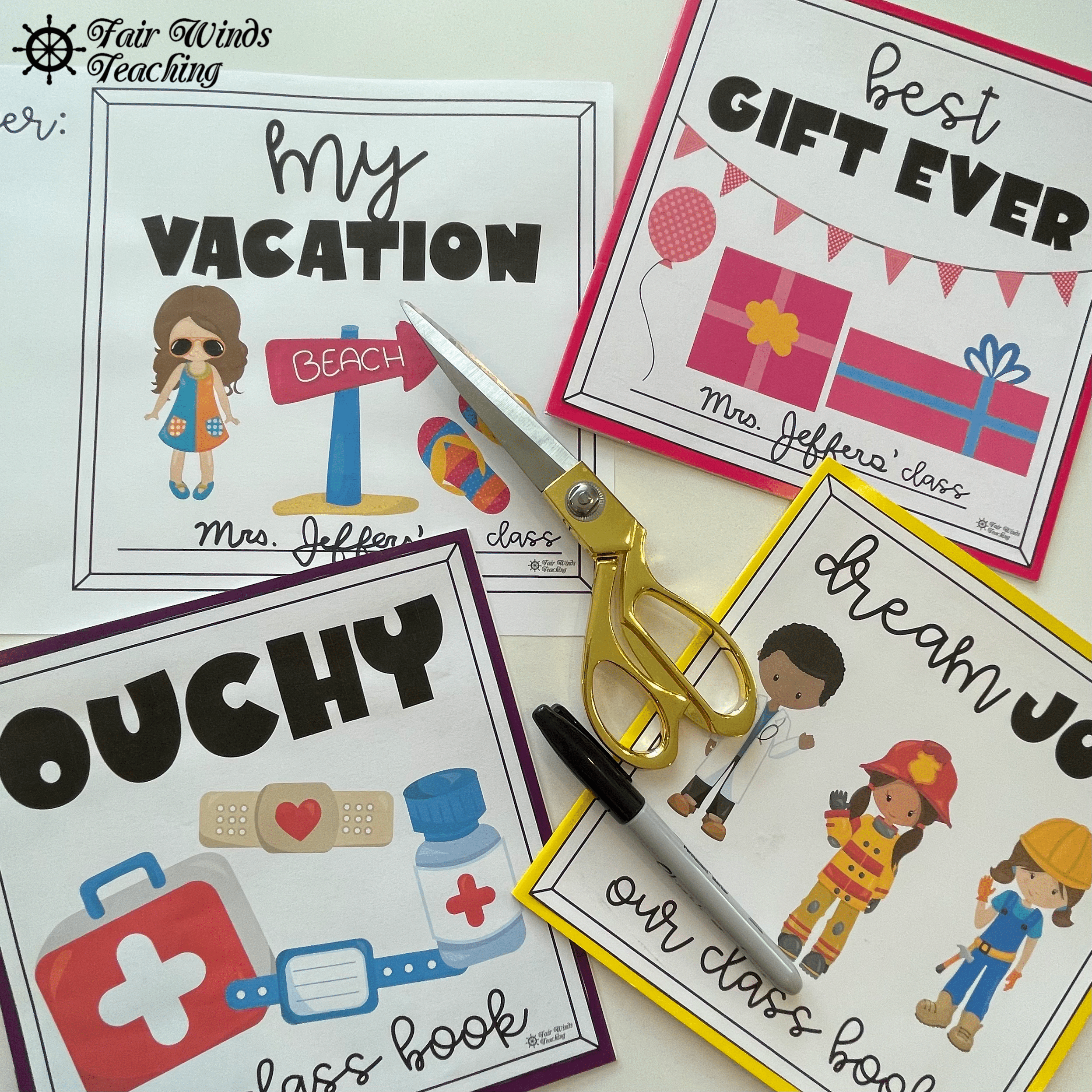
There are plenty of pages for them to use to write and draw and then take some time to read other entries. When the book is complete, I add it to the book center and glue another topic label on another blank book. Grab these now for your Starting with STEAM bins or independent writing center.
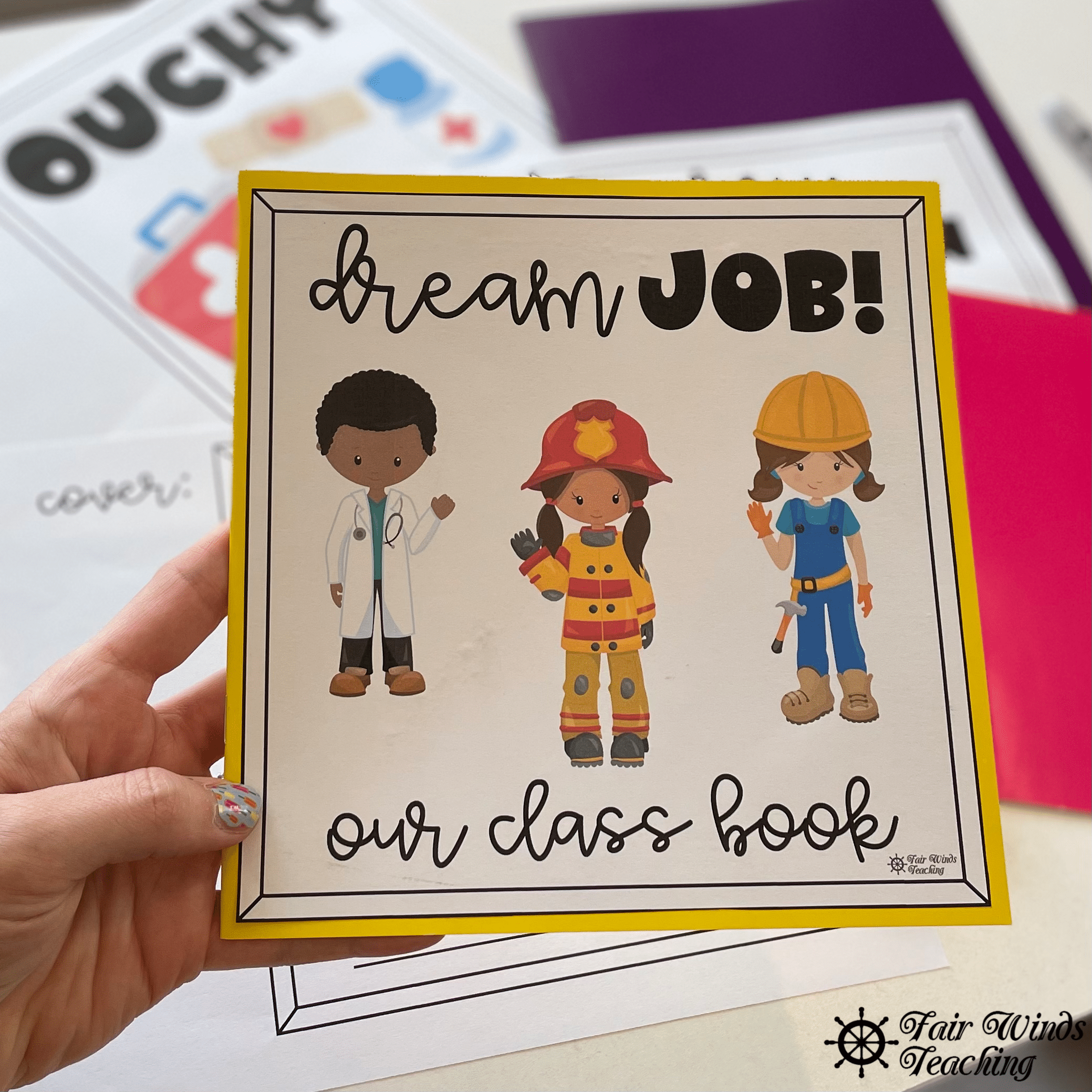
Lastly, I also want my students to read STEAM books. I use one of the containers of Starting with STEAM bins to add and change out a few of my favorite STEAM books. Check out my list of the Best Nine STEAM books for my classroom. These books help open the mind to a child who might be nervous to get creative or think outside the box.
My top favorite STEAM books for children:
-
- Rosie Revere Engineer by: Andrea Beaty
- The Day the Crayons Quit by Drew Daywalt
- Iggy Peck Architect by: Andrea Beaty
- Balloons Over Broadway by Melissa Sweet
- Perfect Square by Michael Hall
- The Most Magnificent Thing by: Ashley Spires
- What Do You Do with an Idea? by: Kobi Yamada
- If I Built a House by Chris Van Dusen
- What to do With a Box by Jane Yolen
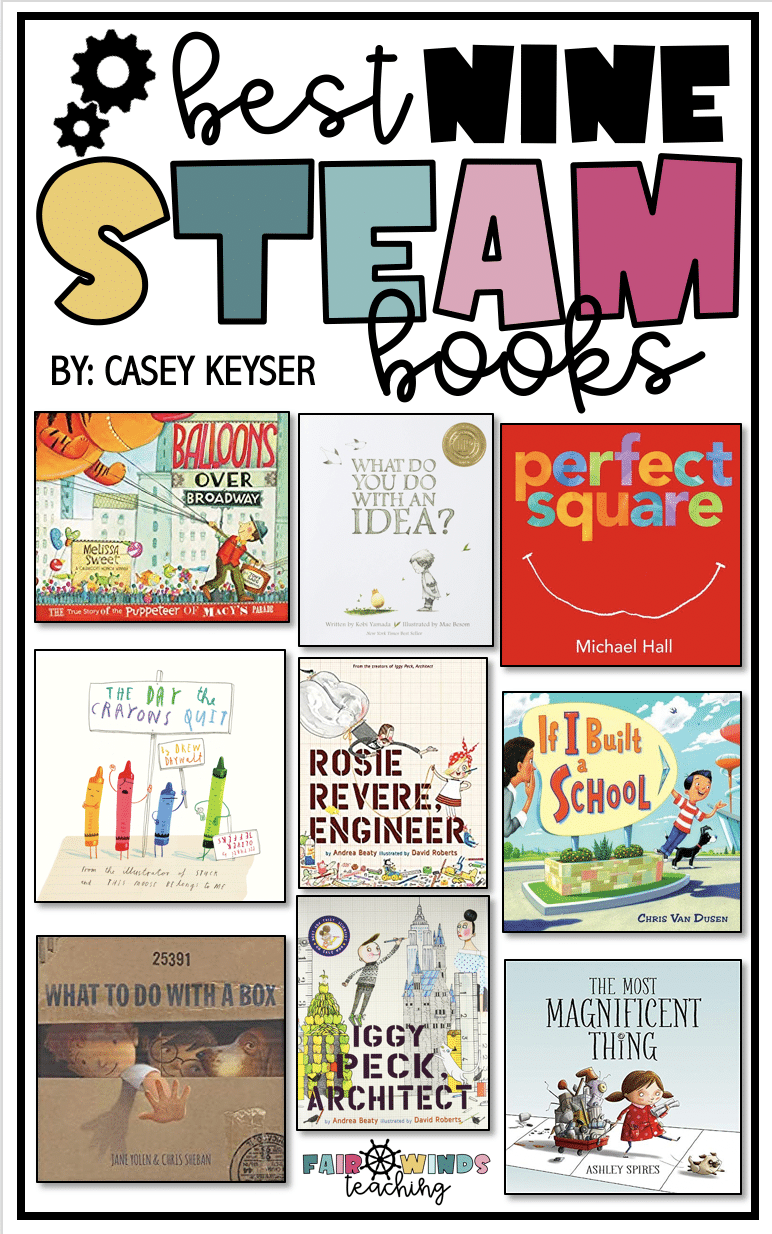
Casey Keyser is a third-grade teacher at Butterfly Ridge Elementary in Frederick County, Maryland. She was recently recognized as the national winner of the NEA Foundation’s 2021 Teaching in Excellence Award. Casey is the proud owner of the Education Resource Blog, Fair Winds Teaching, and loves to connect with her education community through her TeacherPayTeacher’s business.
- Graduation – When to Remove Your Child from Your Auto Policy - May 18, 2023
- How to Prevent Catalytic Converter Theft - May 17, 2023
- How Much Does Home Insurance Cost? - May 17, 2023

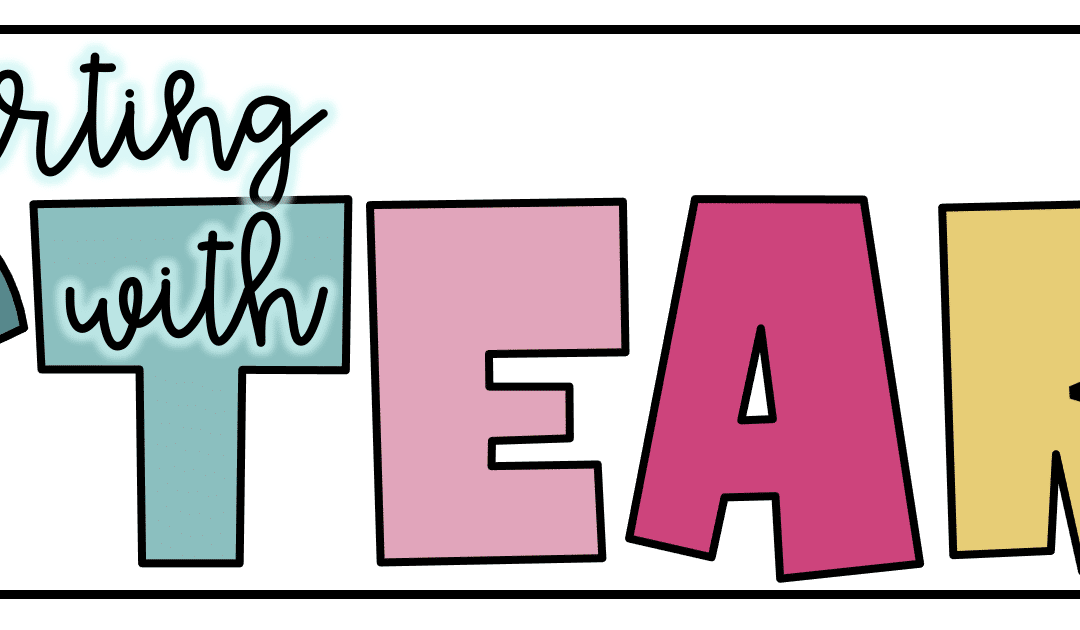

Trackbacks/Pingbacks